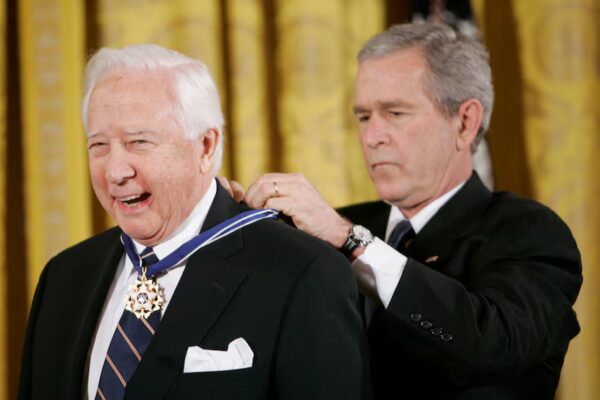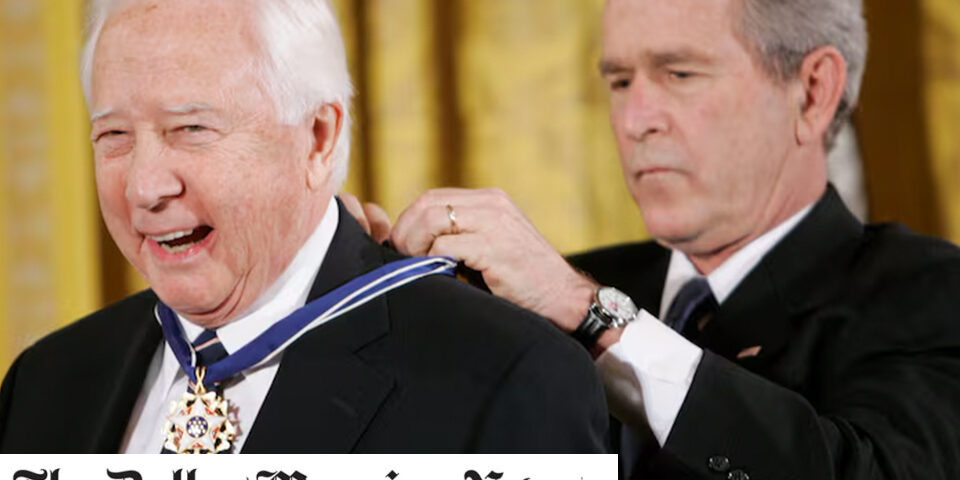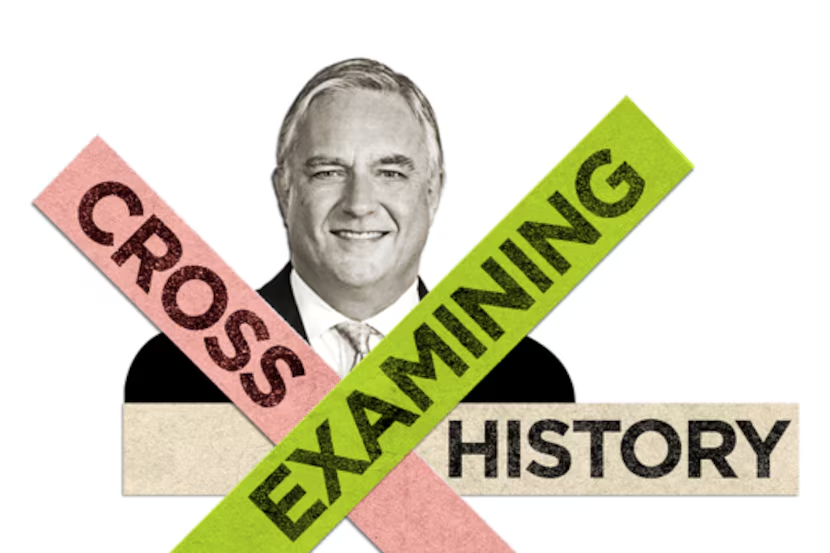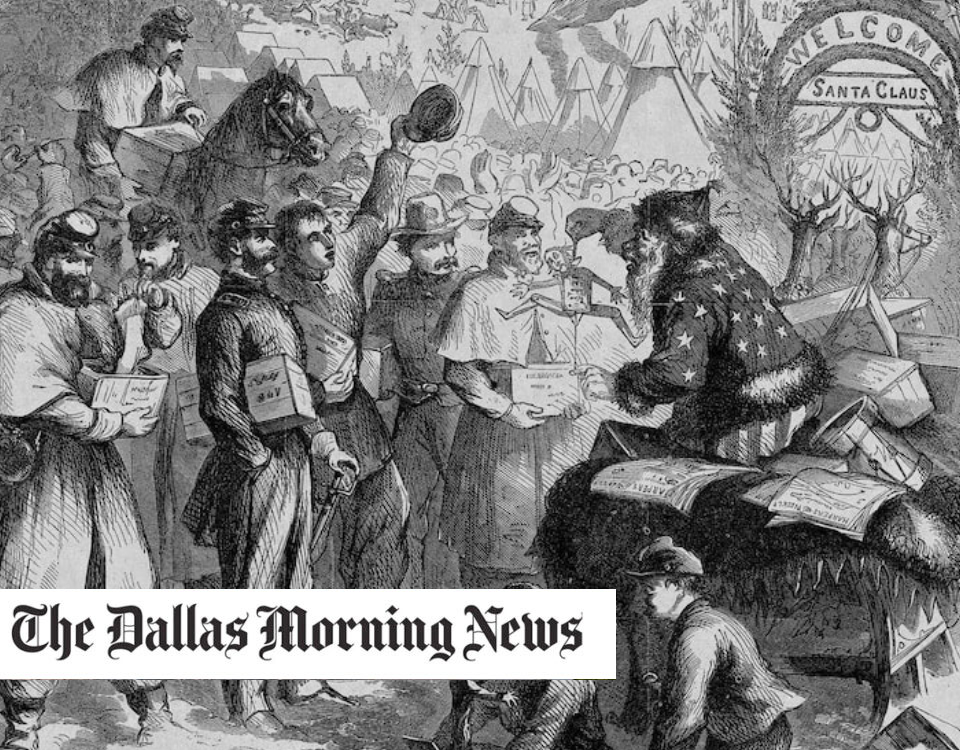Here’s how to make history come alive for a generation that’s forgetting it.
 Next year, America will celebrate the 250th anniversary of the signing of the Declaration of Independence, a semiquincentennial to be marked by festivities and public reflections aimed at paying tribute to the ever-expanding American story.
Next year, America will celebrate the 250th anniversary of the signing of the Declaration of Independence, a semiquincentennial to be marked by festivities and public reflections aimed at paying tribute to the ever-expanding American story.
An aid to enhance this upcoming landmark occasion arrived last month with the release of History Matters, a tight, 164-page collection of the late David McCullough’s deepest musings, chosen by his daughter Dorie McCullough Lawson and longtime researcher Michael Hill.
In the book’s foreword, historian Jon Meacham identifies what separated McCullough from others in his field. “In his hands, history was an unfolding, contingent, and above all fascinating story of people … of human beings driven by fear and hope, by ambition and altruism, and by vice and virtue … who dwell in a vivid, living, chaotic present. His mission was to make their present real to the future,” Meacham wrote, “the key task of the historian and biographer.”
In sync with Meacham’s thoughts, here’s my favorite quote from David McCullough: “When Jefferson wrote ‘when in the course of human events,’ the operative word was ‘human.’”
Before patriotic fervor shifts into overdrive, we should answer this question: Exactly what and why will we be celebrating next year? McCullough, the Pulitzer-winning biographer of John Adams and Harry Truman, whom I had the privilege of interviewing, and who was kind enough to endorse one of my books, weighed in on the subject in his 1995 speech to the National Book Foundation.
Opinion
Get smart opinions on the topics North Texans care about.
“History shows us how to behave. It teaches and reinforces what we believe in, and what we stand for. It’s the bedrock of patriotism. Everything we have exists because somebody went before us and did the hard work, provided the creative energy, provided the money, provided the belief. Do we disregard that? Indifference to history isn’t just ignorant, it’s rude. It’s a form of ingratitude,” McCullough said.
He said this while acknowledging that “we are raising a generation of young Americans who are to a large degree historically illiterate.”
That same year, he addressed a class at Union College and found, to his dismay, that the students “know a great deal about the Holocaust, but were very vague on World War II.”
The year before, while teaching 25 seniors majoring in history at Dartmouth, he was amazed to find out that “none knew who George Marshall was.”
Given the challenge of celebrating history when so many Americans lack interest in it, what should we do to energize the country for next year’s celebration? With definitive precision, McCullough gives these thoughts on how best to “ring the bell and give the rope a hell of a pull” to trigger a renewed appetite for savoring history.
Take responsibility for stoking a passion for history
McCullough cites Antoine de Saint-Exupéry: “Responsibility is the essence of morality. If we do not care about our past, if we do not write history, take photographs, make films, save buildings, save towns, save the works of our rich culture, then we are being irresponsible in the extreme.”
Make history more compelling
“There’s no secret to making history come alive. Tell stories.” McCullough says. “History must be more than a sequence of events. It must be an unfolding story that allows us to get inside the experience of events and feel what it was like. We need stories like we need food and water.”
McCullough believed his job was to bring historical characters to life, and that’s why in his books, we come to know people like John and Abigail Adams, Theodore Roosevelt and the Wright Brothers intimately.
Recognize that history can be applied to our daily lives
McCullough cites esteemed writer Paul Horgan for this proposition: “The most valuable writers of history are those in whom we find not themselves, or ourselves, or the eras of their lifetime, but the common vision of all times.” Then he explains how that’s done: “Continuity is the essence of writing history. I’m interested in the continuity of civilization, the connection between one generation and the next. That’s why fathers and sons play such a large part in my books.”
Finally, remember that knowing history nourishes the soul
McCullough cites the painter and writer Delacroix: “The task of the historian is to give sustained attention to a thousand objects at once, and still preserve that warmth which animates the connection of names and makes it more than an abstract from a gazette.”
In the coming year, may we commit to focusing our attention less on what former Yale University President and Major League Baseball Commissioner Bart Giamatti called “the giddy headlong rush” of daily living that produces “a world of confusion,” and less on the anticipated patriotic chest-beating pablum, and more on how history gives us the means to appreciate our story.
The reward for embracing this great scholar and storyteller’s thoughts, which I got to observe firsthand on the occasions we were together and corresponded with each other, is there for all to see on his joie de vivre epitaph found in the new book’s final sentence, borrowed from the painter Robert Henri, “He lived and worked ‘like a man coming over the top of the hill singing.’”
That’s how we should come into 2026.




